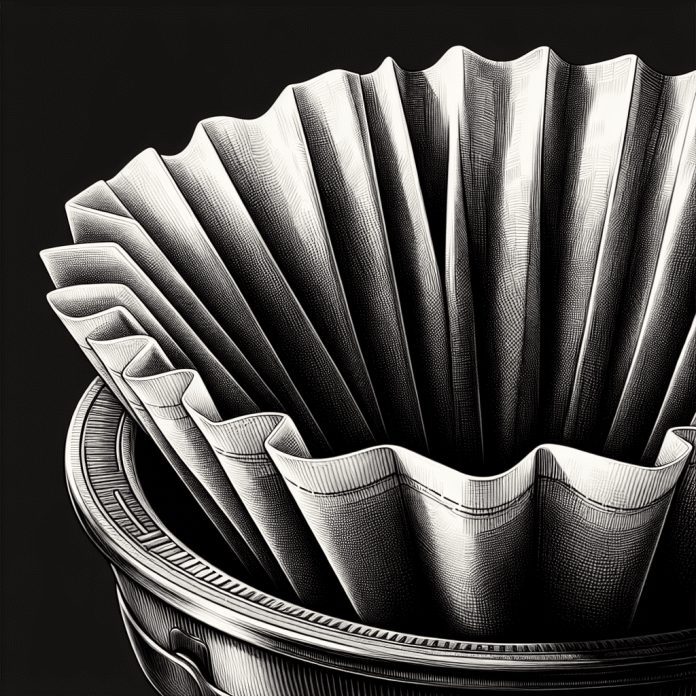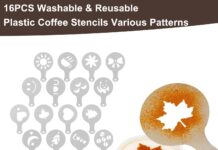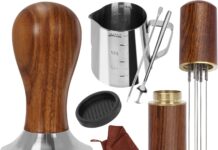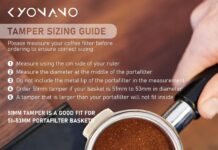We all know that a good cup of coffee in the morning can set the tone for the entire day. But have you ever wondered about the role coffee filters play in the brewing process? In this article, we will explore the different types of coffee filters and the benefits they bring to your everyday cup of joe. From paper to metal, each filter offers a unique brewing experience, ensuring you get the perfect taste and aroma in every sip. So grab your favorite mug and get ready to discover the fascinating world of coffee filters.
Types of Coffee Filters
Coffee filters are an essential tool for brewing a delicious cup of coffee. They come in various types and have distinct features that affect the taste and quality of the brewed coffee. In this article, we will explore the different types of coffee filters available on the market and discuss their composition, benefits, drawbacks, and proper maintenance. Whether you prefer paper, metal, cloth, disposable, or reusable filters, we’ve got you covered with all the information you need to make an informed decision.
Paper Filters
Composition and Construction
Paper filters are the most commonly used type of coffee filter. They are usually made from bleached or unbleached paper and are constructed using a porous material that allows water to flow through while trapping coffee grounds. The construction of paper filters typically involves creating a cone or basket shape with pleats and seams to ensure a snug fit in the coffee maker.
Benefits of Using Paper Filters
One of the primary benefits of using paper filters is their ability to filter out sediment and coffee grounds, resulting in a clean and smooth cup of coffee. Paper filters also remove oils and fatty acids from the coffee, reducing its bitterness and acidity. Additionally, paper filters are affordable and readily available, making them a convenient option for home brewers.
Drawbacks of Using Paper Filters
While paper filters have numerous advantages, they also have a few drawbacks. Some coffee enthusiasts argue that paper filters absorb certain flavors and oils that contribute to the coffee’s aroma and taste. Additionally, the porous nature of paper filters can lead to slower brew times compared to other types of filters. It’s also important to note that some paper filters may leave a papery taste if not rinsed properly.
Different Types of Paper Filters
There are different types of paper filters available, each with its own unique features. The most common types include cone-shaped filters and flat-bottom filters. Cone-shaped filters are typically used in pour-over brewing methods, while flat-bottom filters are commonly used in automatic drip coffee makers. Additionally, coffee filters come in various sizes, so it’s essential to choose the appropriate size for your specific coffee maker.
Metal Filters
Composition and Construction
Metal filters, also known as mesh filters or screen filters, are typically made from stainless steel or fine mesh material. They are designed with small holes or pores that allow water to pass through while retaining coffee grounds. The construction of metal filters varies, with some having a flat disc shape, while others are cone-shaped or basket-shaped, resembling paper filters.
Benefits of Using Metal Filters
Metal filters offer several advantages over paper filters. Firstly, they are reusable and environmentally friendly since they don’t contribute to paper waste. Additionally, metal filters allow more oils and fine particles to pass through, resulting in a fuller-bodied and more aromatic cup of coffee. They also tend to have a faster brew time compared to paper filters, making them a popular choice for those who prefer a quick brewing process.
Drawbacks of Using Metal Filters
While metal filters have their benefits, they are not without drawbacks. One of the main concerns with metal filters is that they allow sediment to pass through, which can result in a slightly gritty texture in the coffee. Additionally, metal filters require careful cleaning to remove coffee residue that can accumulate over time. Some users also find that metal filters can alter the flavor profile of the coffee, often giving it a heavier and more robust taste.
Different Types of Metal Filters
Metal filters come in various types, such as disk filters, mesh filters, and fine-mesh filters. Disk filters are flat filters that fit inside the brewing chamber, while mesh filters have larger holes that allow more oils to pass through. Fine-mesh filters have smaller holes and are designed to provide a cleaner cup of coffee.
Cloth Filters
Composition and Construction
Cloth filters, as the name suggests, are made from cloth material such as cotton or hemp. They are designed as reusable filters, offering a sustainable alternative to both paper and metal filters. Cloth filters are typically cone-shaped or bag-shaped and need to be properly cared for to maintain their integrity.
Benefits of Using Cloth Filters
Using cloth filters has its advantages. One of the primary benefits is their ability to produce a rich and full-bodied cup of coffee. Cloth filters also allow some oils and fine particles to pass through, resulting in a nuanced and complex flavor profile. Additionally, cloth filters are reusable and can last for a long time when properly maintained, making them a cost-effective option in the long run.
Drawbacks of Using Cloth Filters
Despite their benefits, cloth filters also have a few drawbacks. One of the main concerns with cloth filters is the potential for mold or bacterial growth if not cleaned and dried properly after each use. They can also be more challenging to clean compared to paper or metal filters, requiring thorough rinsing and occasional boiling to remove coffee residues.
Proper Maintenance and Cleaning
To ensure the longevity of cloth filters, proper maintenance and cleaning are essential. After each use, rinse the cloth filter under warm water to remove any coffee residues. Periodically, it is recommended to boil the filter for a few minutes to remove any built-up residues. Make sure to allow the cloth filter to dry completely before storing it to prevent mold or bacteria growth.





































